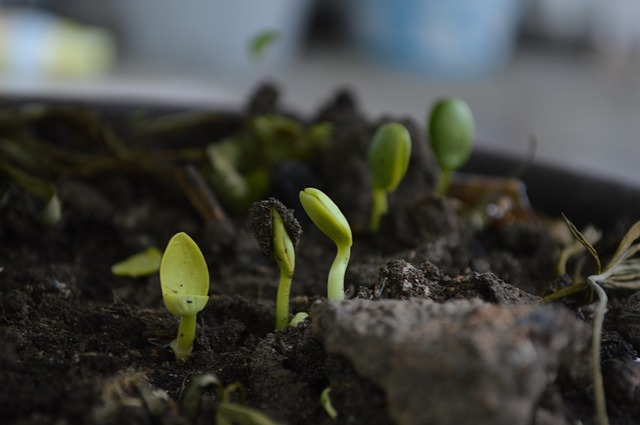Garden Route residents who have space in their gardens are reminded that they can create their own compost with kitchen scraps and garden waste to add nutrients to their gardens during the lockdown. Garden Route District Municipality (GRDM) recommends that residents keep their kitchen scraps in a plastic bucket with a lid.
Once this bucket is full, add it to one of your preferred composting methods.
“The lockdown is the perfect opportunity for residents to start contributing to the environment by diverting their organic waste from landfill and putting the much needed nutrients back into the soil by means of composting,” said Morton Hubbe, GRDM Manager: Waste Management. “Composting is a simple way to add nutrient-rich humus to fuel plant growth. It restores vitality to depleted soil – and it is great for the environment.”
Composting Processes
There are three types of composting namely cold-, hot- and worm composting.
Cold composting is as simple as collecting garden waste or taking out the organic materials in a bucket and then moving it over to a bin or pile where material will gradually decompose.
Hot composting is for the more serious gardener, but is a much faster process and requires regular aeration and attention. Four ingredients are required for fast-cooking hot compost: nitrogen, carbon, oxygen and water. Together, these items feed microorganisms, which speeds up the process of decomposing.
In worm composting (Vermi-composting), worms eat food scraps and release nitrogen-rich castings. Worms also produce “worm tea”, an excellent organic fertiliser which prevents some plant diseases, reduces insect infestation and promotes nitrogen fixation in soil. Only Red Worms (Eisenia fetida) can be used for this process. Worm composting is a perfect method for those residents who don’t have gardens or live in apartments to divert their kitchen scraps from landfill.
Composting Benefits
Soil conditioner – compost creates rich humus for a garden, which adds nutrients to plants and helps retain moisture in soil.
Recycling kitchen and garden waste – composting can divert as much as 30% of household waste away from garbage bins.
Reduce landfill waste – most landfills in the Garden Route district are already closed and the remaining ones are close to their maximum capacity. Diverting organic waste from a landfill site extends its lifespan and reduces transport costs and air pollution.
Beneficial organisms for soil – microscopic organisms in compost help aerate the soil, breaks down organic material for plant use and wards off plant diseases.
Good for the environment – composting offers a natural alternative to chemical fertilisers.
Cost saving – no need to purchase compost or fertilisers.
What is compost?
All compostable materials are either carbon (dry, brown items) or nitrogen-based (wet, green items), to varying degrees.
To create ideal conditions for composting, try to include roughly equal parts of both and mix the materials. A mix with more carbon-based materials will take longer to turn to compost, while a mix with more nitrogen based materials may generate odors.
The following are examples of carbon-based (brown) materials: dry / fallen leaves, shrub prunings, wood ash, cardboard, sawdust & wood chips (untreated wood), dry garden plants. Examples of nitrogen-based (green) materials include: fruit and vegetable scraps, green leaves, garden clippings, green plants, coffee grounds, tea leaves, manure. Lastly, egg shells are an example of a neutral material and adds beneficial calcium to the soil.
Please refer to the Municipality’s home composting guideline for more information in this regard – download GRDM’s Home Composting Guideline for more details.
Picture: Pixabay

